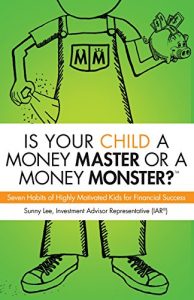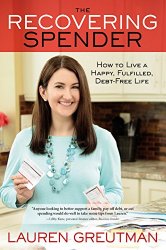As an aspiring writer passionate about short stories, you will want to know that a short story differs from writing a novel. Short stories are interesting and fun to read. A good short story can be a one-sentence story or as long as seven thousand words.
Here are the top five tips for writing great short stories.
Keep reading!
Integrate a Conflict
If you are new to writing, we suggest that you take one of the best creative writing classes to know what is expected of you – especially in connection to how to integrate conflict in your story. If you want your readers on the edge where they are dying to know what is happening in the story, you will want to focus on conflict.
By integrating conflict, you will create much-needed tension in the story, which will also be the force to drive the narrative forward. Conflict often discloses a deeper theme or meaning in a narrative while bringing to light the character’s values, weaknesses, and motivations.
When it comes to creating a conflict, you can do it in several ways. For instance, you could portray the character as having a dilemma. Or – the character could have a revelation that would fill them with tension while deciding.
A good dose of tension and conflict can keep the readers hooked to the narrative and invested from the very beginning to end.
If you have to be a sadist – don’t hesitate to do it. As a good writer, you will want to be a sadist by making bad things happen to the main characters. This way, you will reveal the characters’ motivations, weaknesses, and strengths to the readers, which will make them emotionally attached to the characters by relating to them.
We know that all humans are flawed and that perfect humans are not relatable. You get the point – a good short story needs a good dose of conflict and tension.
Integrate a Backstory
You can leave a little space to narrate a character’s backstory. You can also leave out the backstory – remember – you aren’t writing a novel, and you have a limited amount of words you need to use.
With that said, you will want to ensure that every sentence counts. Even if a single word looks like an extra – it has to go. Of course, you won’t be describing the backstory on paper – but – you, as the author of the short story, need to have the full picture in your mind.
You need to be aware of the character’s motivation and use it as a way to write a compelling story.
You can use dialogue, monologues, and tension to give the readers an insight into the backstory and engage all their senses.
Appeal to the Reader’s Senses
You will want to use words to appeal to the reader’s five senses instead of focusing only on the visual experience. You will want to use words in your short story carefully and creatively to transport your readers into the world of your characters by letting them experience the world through seeing, touching, smelling, tasting, and hearing it.
Now you get the point of what it means to show and not tell with the use of words. You will be using words to invite the readers to experience the full extent of the world’s small and big things.
You will want to make your readers feel as if they are present in the world with the characters – living the situation or event with the characters.
A short story is different from a novel – while the novel allows you to introduce one scene after the other – you will have to use words, dialogues, and characters in a way to tell the entire story and make your readers a part of the story.
Use Dialogue
As a first-time short story writer, you can easily fall into the trap of writing scenes and forgetting dialogues on the way.
You will want only to depend a little on the scenes because you only have limited words. You will want to reach a conclusion quickly compared to a novel where you can dive from one scene to another.
Good dialogue is crucial for character development and making the short story come to life. When you place characters in a scene, you will want to give them something to do, bring the reader’s attention to the dialogue, and eventually advance the story through dialogue.
You can also use dialogue to set up conflict and build drama through an exchange of dialogue. While using dialogue, make sure that it suits the character and that it feels real so the readers get drawn into the story.
Become a Ruthless Editor
Irrespective of how good you think you nailed your first draft – there is always room to make it more compelling and concise. To improve your writing skills drastically, you will want to become a ruthless editor of your own work.
You will want to understand the primary principle: edit ruthlessly – keep going despite the hurt. Editing ruthlessly is even more important in a short story because the more precise the story, the more likely your readers will read it until the end.
Initially, you will find it hard to cut out even a word – much less an entire sentence. But – if the sentence or the word doesn’t add to your overall message or story – then it is not something your readers would like to read.
With that said, feel free to edit your work ruthlessly. This isn’t about you – but it is about your readers. You will want to do everything possible to write a better and more compelling story for them to give them the ultimate reading experience.
While editing your short story, you will want to combine your characters wherever possible. You will also want to delete extra scenes and get right to the conflict of the story. Instead of telling, you will want to focus on showing.
Also, make every sentence in your short story count. No fluff is allowed. So, make sure to eliminate all unnecessary words, including adjectives and adverbs.




